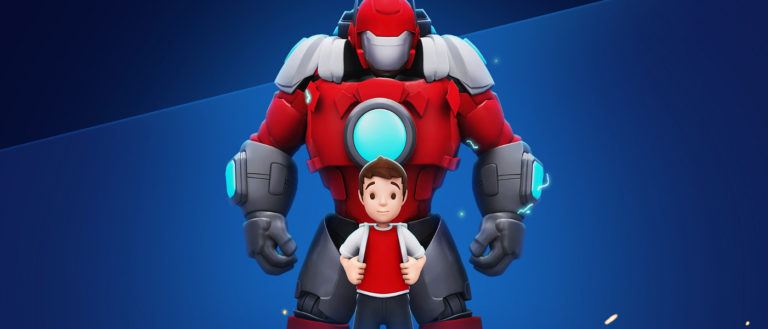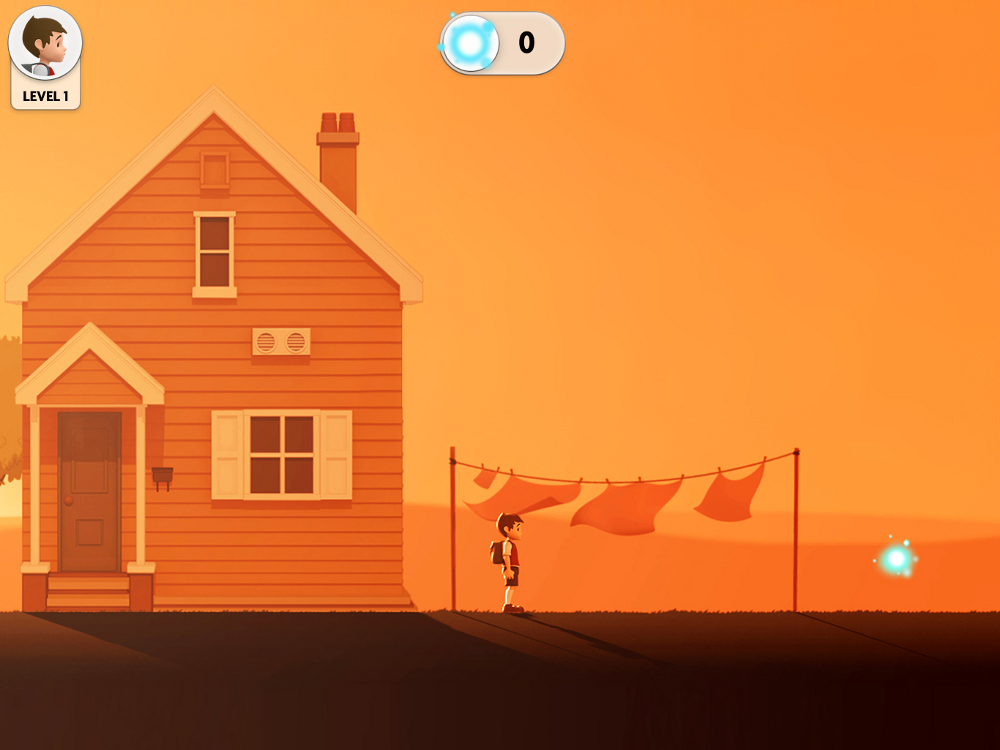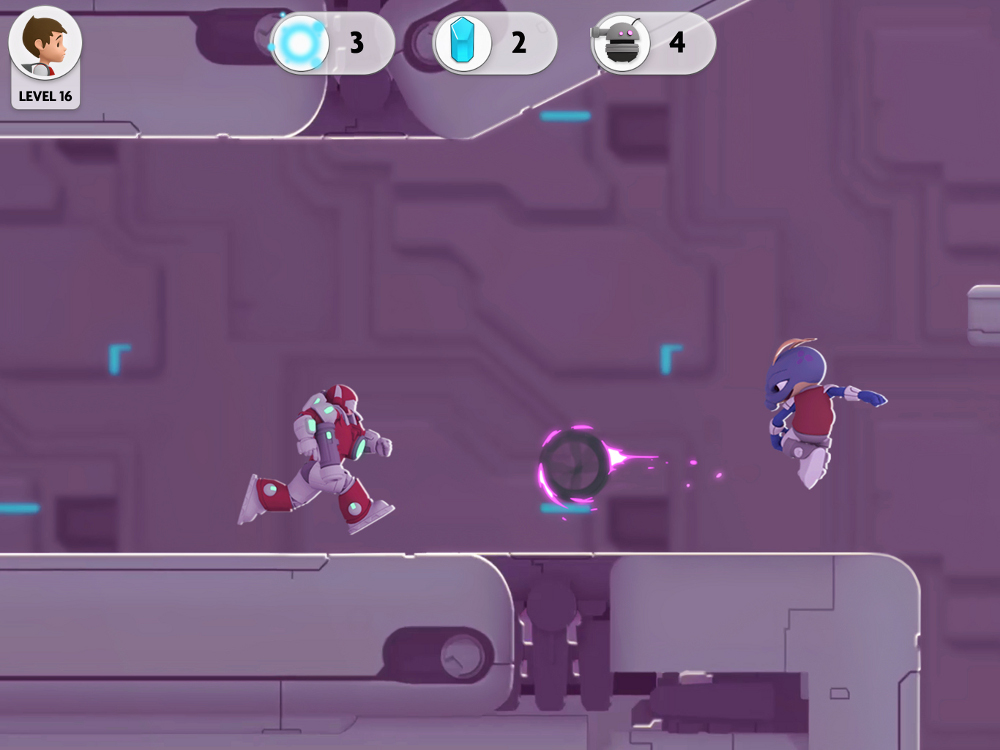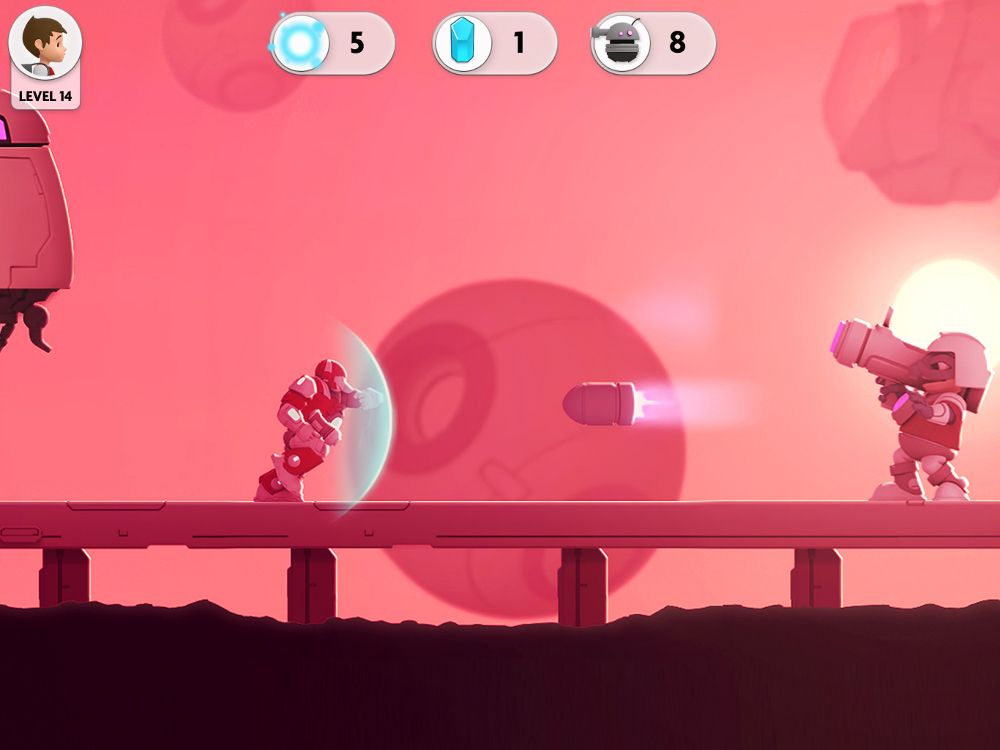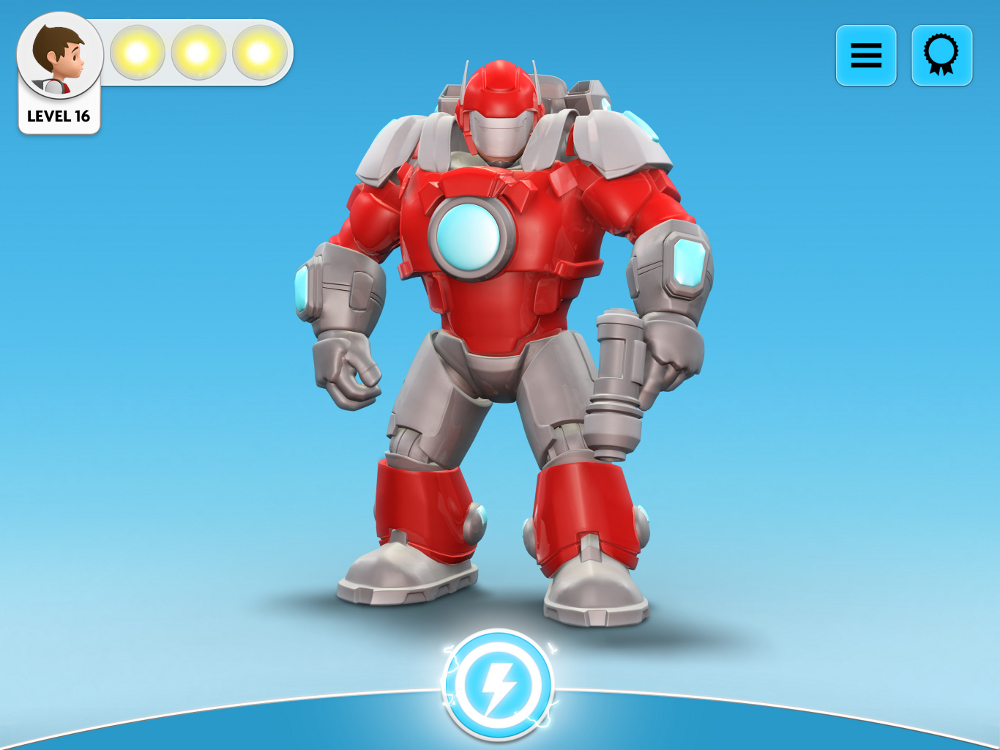Super Powerboy, the debut game from British-based indie studio Pixel Blast, is set to hit the App Store in a matter of days (on Thursday, September 1st, to be exact). If you aren’t hyped for this stupendously great-looking action platformer yet, prepare to be!
I know I always say this, but the following seriously is one of the most fascinating and in-depth interviews we’ve ever run on iFanzine. The Pixel Blast guys gave great answers to each and every question I threw at them, and I think the resulting piece really shows just how much thought, effort and hard work went into bringing Super Powerboy to life.
Without further ado, here’s the interview…
Pixel Blast is a relatively newly founded indie studio, but many of its members actually have a long history of working in the games biz. Would you mind filling our readers in on your background(s) and how you all came to work together on your first project, Super Powerboy?
Jonny: Hi, I’m Jonny Severn, Creative Director at Pixel Blast. I have a proven track record developing groundbreaking and award winning digital content for over 16 years. Working with major brands such as Sony, Microsoft, Rare, EA, Land Rover, Bentley, Aston Martin and Jaguar, I have been responsible for successfully delivering content across console games, Facebook apps, interactive websites and animated shorts amongst others. I have also designed and produced two mobile apps: Alpha Zoo and Super Powerboy.
Niall: Hello, I’m Niall Muldoon, Technical Director at Pixel Blast. I’ve been working as a programmer in the video game industry for nearly 10 years and have worked on a number of released titles including, Guitar Hero Live, Sing Party, The Shoot, Buzz: Monsters and Buzz: RoboJam.
I’ve known Jonny for about 6 years now and we were friends long before we set out to create Super Powerboy. I think having a strong friendship is really important before you set out to work together in such a small team. The very nature of game development means that there will be both good and bad times, you need a bond there to weather the bad times and bounce back from what I like to call our ‘artistic differences.’
My jaw literally dropped whilst watching the Super Powerboy trailer for the first time. The game looks remarkably well polished, with production values through the roof. How long has it been in development?
Niall: Wow, thanks, that really means a lot!
Jonny: The game has been in active development for just under 2 years, but I had the idea about 6 or 7 years ago after looking at some illustrations.
Niall: Having the game hit 60fps and avoid jaggies was really important to us. To achieve this we made use of some rather old school techniques to get the game looking and playing the way it does. It’s actually a blend of 3D/2D assets and pre-baked artwork along with some more up to date pixel shader work for things like the shadows and lighting.
All of this would have been for naught if the art style wasn’t gorgeous, luckily we have Jonny for all of that! My own artwork is… interesting to say the least.
In your press release, you cite a number of games and movies that helped influence the making of Super Powerboy, including Mega Man, Dragon’s Lair and Brad Bird’s The Iron Giant. Since this is basically a laundry list of things I love, can I ask you to talk a bit more about these inspirations and how they shape the game?
Jonny: In terms of visual style and tone we were keen to draw inspiration from other media such as animation and children’s literature. I’m a huge fan of Don Bluth and Brad Bird’s work and the game idea I had complimented these references. Their work has a timeless quality which transcends the medium.
I was very keen to build a believable fictional world that is both original and compelling. This is obviously no easy undertaking especially with a small budget and it’s easy to fall into the trap of copying other successful games. I spent a large amount time getting the main character and basic aliens down and the rest sort of fell into place after that.
The boy has a very deliberate Christopher Robin quality as I wanted him to have the same timeless innocence. The aliens draw inspiration from the show’s such as The Raccoons and Pink Panther’s Anteater. I felt it was important to get the villains right from the outset and for some reason they had to be blue with little snouts.
In terms of gameplay references we pulled on wide range of sources from old classics such as Turrican 2, Monty Mole and Wonder Boy. To more recent games like Crackdown and Rayman. But once we started prototyping the game took on a direction of its own!
Without giving too much away ahead of release, what can you say about the game’s main character and story?
Niall: Aliens have invaded the planet with a fiendish plan to plunder the Earth’s natural resources! The task of sending them packing is down to a small boy who just happens to come across a pretty super robot suit that gives him the powers needed to fight back!
Growing up, we dreamed of aliens, robots and super powers, these are the core themes that run through Super Powerboy.
In many ways, Super Powerboy is a reinvention of the classic arcade experience but brought up to date with innovative touch controls and visual flare. We have made a game that we would like to play ourselves.
Super Powerboy’s gameplay has been intriguingly described as “a unique blend of runner and platformer mechanics.” Could you expand a little on that?
Niall: The core premise when designing the levels and character controls was to make it feel as little like an on-rails runner as possible. We achieved this by getting the feel of the character just right when controlling him directly, and then adding the auto running feature afterwards. We think this gives our character a very fun weighty feel, it definitely does not feel like a lot of other runners out there in our opinion!
Jonny: The game has been designed from the ground up for touch devices and it really pushes this input mechanism in terms of complexity. We really tried hard to take the controls right up to the line, while always giving the player the feeling of being in control.
Super Powerboy won a second-place award at PGC London 2016’s ‘Very Big Indie Pitch.’ That must have been a great feeling and a big morale boost during development of the game?
Jonny: As you are undoubtedly aware, making games independently is no easy task. We are really grateful to the Pocket Gamer team for all the support they have shown us over the last year. They are a nice bunch and have a real passion for games. When a team is in the midst of making a new title it can be difficult to evaluate progress. It’s not until you put it in front of people that you discover if you doing something of value or not.
Niall: Yeah, that was a massive turning point for us in the development. It was the culmination of a lot of hard work and was the first time we had the game playable by the public with the full meta game intact.
It’s always nerve racking having external people play something for the first time, but this was a panel of international industry judges and the show floor was full of other devs, what if they didn’t like what we had done…?
Fortunately, that wasn’t the case! It was an amazing feeling to get through to the final! The last 5% of game development is always the toughest and this really did provide a giant shot in the arm for us to keep going and make the game the best it could be.
Paid games have been going through something of a resurgence on the App Store in 2016, however, the ‘Freemium’ model probably still reigns supreme. Any particular reason you decided not to go the free-to-play route with Super Powerboy?
Niall: The idea for Super Powerboy doesn’t really lend itself very easily to the Freemium model, you earn the suit upgrades at very specific points in the game, and we made great use of this to really hone the level design. This would simply not have been possible if you could purchase the suit upgrades. We also didn’t feel like advertising was the right way to go as it does have a tendency to take you out of the world we have so carefully crafted for you. We aren’t ruling out any business models for future games, if we had an idea that gelled well with this delivery method and the market still wanted it, we would definitely consider it.
Jonny: Just to be clear, we aren’t against F2P games, but we feel it’s important from the outset to know what type of game you are making. We are interested in making great games that will connect with gamers. Our central idea was a journey of progression, from an innocent small boy to huge mechanized robot. I wanted the tone and gameplay to also reflect this same progression. We looked at the F2P model but it didn’t compliment the idea and to do it properly would have meant compromising the vision. That said, we could sell additional missions, modes and consumables down the road if there was an appetite for it from the public, none of this exists yet, so we’ll need to see how the game does once it’s released.
Okay, I’ll wrap up with a question we always like to ask successful (or soon-to-be successful) indie developers. What advice do you have for up-and-comers looking to break into the mobile games scene?
Niall: Haha, I’m not generally a superstitious person, but I’m definitely feeling an urge to touch some wood after you’ve said that!
I can give you my point of view as a programmer, I’m sure things are very different for other disciplines.
My route to where I am today was a fairly traditional one. I went to University and studied Computer Games Technology at Abertay in Dundee, Scotland. I then worked in the industry where I was a small cog in a big machine. This was an important part of the process for me as it allowed me to learn from some of the best in the industry. It was only after years in big companies that I felt like I could leave my job and take a risk by going independent.
There is a lot to learn to make a game yourself and I feel like this route is a great way to prepare yourself for that. At the very least, you get to make some great friends and contacts that will probably help you when you do finally decide to go indie, and believe me when I say you are going to need help!
For people who’ve never made a game before, the main piece of advice I can give you is simply to make stuff and keep making stuff! Make an entire game yourself with a FrontEnd, main game loop and results screens etc. It doesn’t really matter how small the games you make start off, it will give you a really good grounding in what actually makes a game tick and help you decide if it’s something you actually want to pursue as a career.
Jonny: Be brave and make the games that you would love to play and don’t let other people drown out your inner creative voice!
Enjoy what you are doing — as there is no better feeling than making something cool with people you like!
Do not fear failure and don’t leave it too late before having a go!
I really like this quote from Oscar Wilde, it kind of sums up my thoughts really:
‘To know nothing about their great men is one of the necessary elements of English education. We spend our days, each one of us, in looking for the secret of life. Well, the secret of life is in art. The supreme object of life is to live. Few people live. It is true life only to realize one’s own perfection, to make one’s every dream a reality. To me the life of the businessman who eats his breakfast early in the morning, catches a train for the city, stays there in the dingy, dusty atmosphere of the commercial world, goes back to his house in the evening, and after supper to sleep, is worse than the life of the galley slave — his chains are golden instead of iron. Bad art is a great deal worse than no art at all.’
Wow. What a great interview! Thanks for chatting with me and I wish you guys the very, VERY best of luck with the launch of the game.
As mentioned above, Superpower Boy launches for iOS and tvOS on Thursday, September 1st. In the meantime, you can find out more over on the game’s official site and by following Pixel Blast on Facebook and Twitter.


